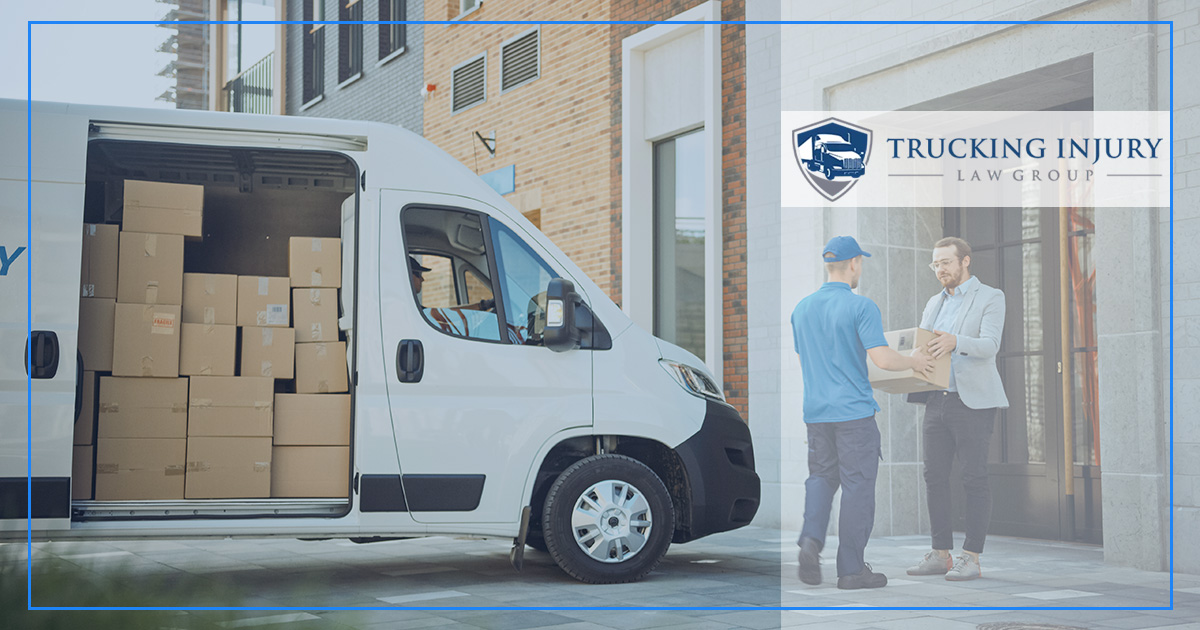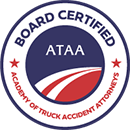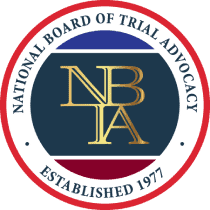Do Delivery Drivers Need a CDL?

Your Amazon delivery person drives a different type of truck than the long-haul trucker who brought those goods to the Amazon warehouse. Do delivery drivers need a CDL? It depends on how big their delivery truck is and how much cargo it holds.
CDL Classes
The trucking industry, including delivery drivers, is regulated by FMCSA and each state. One area both entities agree on is the three class levels that apply to a commercial driver’s license. These are the classes set forth by FMCSA:
Class A: Any combination of vehicles that has a gross combination weight rating or gross combination weight of 11,794 kilograms or more (26,001 pounds or more), whichever is greater, inclusive of a towed unit(s) with a gross vehicle weight rating or gross vehicle weight of more than 4,536 kilograms (10,000 pounds) whichever is greater.
Class B: Any single vehicle which has a gross vehicle weight rating or gross vehicle weight of 11,794 or more kilograms (26,001 pounds or more) or any such vehicle towing a vehicle with a gross vehicle weight rating or gross vehicle weight that does not exceed 4,536 kilograms (10,000 pounds).
Class C: Any single vehicle, or combination of vehicles, that does not meet the definition of Class A or Class B but is either designed to transport 16 or more passengers, including the driver or is transporting material that has been designated as hazardous under 49 U.S.C. 5103 and is required to be placarded under subpart F of 49 C.F.R. Part 172 or is transporting any quantity of a material listed as a select agent or toxin in 42 C.F.R. Part 73.
There are various types of vehicles that qualify as “large” but don’t necessarily require the driver to have a CDL. Those include the following:
Farmers transporting farm equipment, supplies, or products within 150 miles of the farm
Firefighters and law enforcement personnel are exempt from operating emergency equipment. However, they must be certified by the Emergency Vehicle Accident Prevention Program (EVAP).
Recreational vehicle (R.V.) operators
Military commercial drivers when they operate a proper military vehicle under a military license issued by their branch of the service.
Amazon and U.P.S. Delivery Drivers
Many of the average Amazon and U.P.S. delivery trucks weigh around 15,000 pounds. That would put them under the weight restrictions for a commercial driver’s license. However, both companies can require their drivers to have a CDL. That is because that level of license comes with additional training and certification. Those are the kinds of qualifications for drivers that can reduce the risk of getting into a serious accident with another vehicle.
Other delivery drivers who operate food delivery services and Instacart shopping only require a standard driver’s license because those deliveries are typically made using cars and SUVs.
CDL Requirements in Washington State
As mentioned above, each state sets up its own requirements for obtaining a CDL. These are the minimum requirements for getting a CDL in Washington:
- You must be eighteen years or older and have a valid Washington driver’s license.
- You must have proof of U.S. Citizenship, Lawful Permanent Residency, or an on-domicile document.
- Self-certify the type of operation you will be conducting. Medical documents may be required.
- Pass the Knowledge test for the type of vehicle you will be licensed to operate.
- Get a Commercial License Permit (C.L.P.).
- Submit your training certificate to CDLtrainingcerts@dol.wa.gov for approval.
- Schedule and pay for your skills test.
- Conduct and pass the skills test.
There are also physical requirements for getting your CDL in Washington:
Vision in both eyes and each eye individually needs to be 20/40, with visual improvement devices, such as glasses or contacts, allowed.
- It is necessary to be able to distinguish colors.
- Should be able to perceive a forced whisper at a distance of at least 5 feet.
- The maximum allowable blood pressure is 160/100. Prescription medication is permitted to achieve this threshold.
- An applicant can have diabetes, which is controlled through diet or medication. Diabetes, which is controlled through insulin injections, is not permitted.
- Blood sugar may not be higher than 200.
- No use of a Schedule 1 drug, amphetamine, narcotic, or any habit-forming drug is permitted.
The health requirements are essential to note because failure to comply with those restrictions could contribute to a delivery truck accident.
After you meet all the requirements, you have to take the following two crucial tests:
CDL Knowledge Test
This general knowledge test for classes A, B, and C consists of 50 questions to test your knowledge of the applicant’s knowledge of Washington and Federal driving regulations. You need to get 40 questions correct to pass.
CDL Road Skills Test
As with your driver’s license, you need to take a road test after passing your knowledge test. That road test will be in the type of vehicle class you are applying to drive. The test consists of a Pre-Trip Inspection, Basic Vehicle Control, and Road Test.
The Pre-Trip inspection will have you conduct a complete walk-around of the vehicle, point out the different components, and explain how they need to be inspected and checked before each trip. The Basic Vehicle Control test includes common maneuvers like straight line backing, offset right or left backing and alley dock backing. The road test will have you driving on streets and highways in order to demonstrate your skills in everyday traffic situations.
Sharing the Road With Commercial Drivers
Every trip you take will have you sharing the road with a commercial driver. They owe you a duty of care to be a responsible driver and keep the streets safe. If a commercial driver fails in those responsibilities, it will be time to talk to the Trucking Injury Law Group. We can help you process a claim and negotiate with trucking companies on your behalf.





